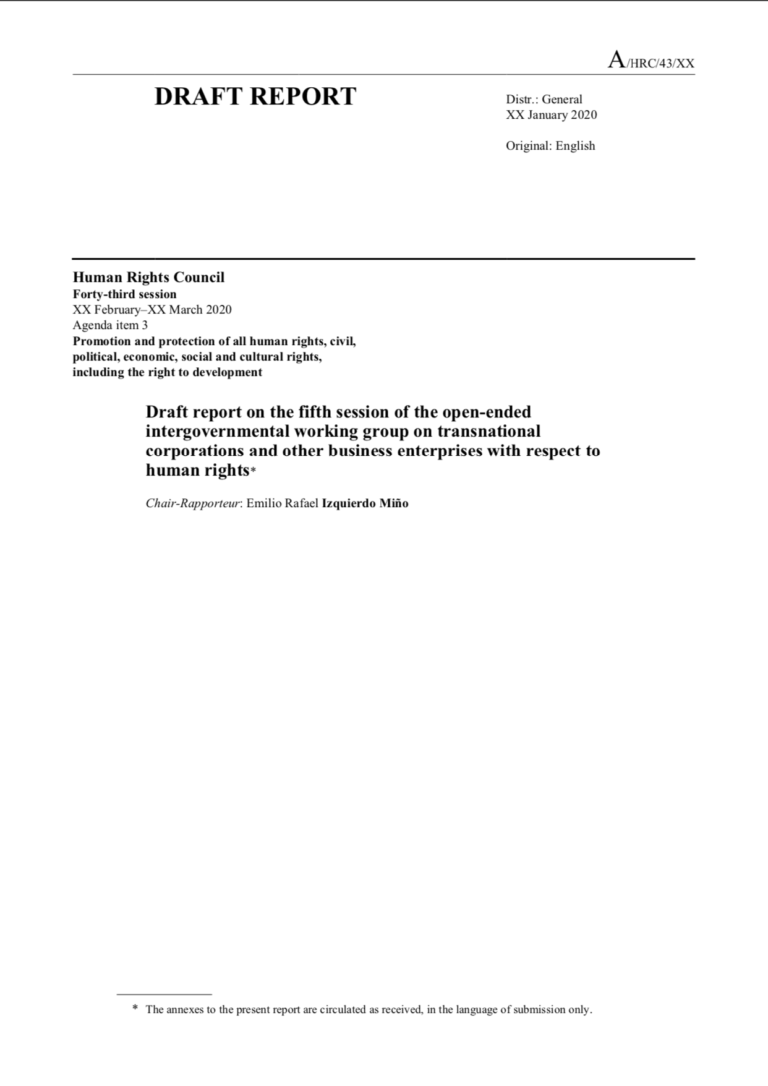The IGWG’s fifth session, which took place from 14 to 18 October 2019, opened with a statement from the United Nations Deputy High Commissioner for Human Rights. She congratulated the Chair-Rapporteur on the release of the revised draft legally binding instrument (RDLBI), which provides a solid basis on which to commence substantive negotiations. For her, a future treaty can help ensure effective prevention, protection and remedy for those subjected to business-related human rights abuses, just as it can help to open up more sustainable, equitable and inclusive development. She recalled that business-related human rights abuses impact different groups of people and rights-holders differently, and some even disproportionally. In that context, she mentioned that a business and human rights treaty is not a cure, but it can and must be part of the solution. She welcomed the recent positive legislative trends in many jurisdictions, while taking note of the diversity of views regarding the treaty, which she considered essential for the fifth session. She reminded that the High Commissioner urges everyone to recall that the UN Guiding Principles on Business and Human rights (UNGPs) and the new treaty can and should be mutually reinforcing and complementary. In that sense, she recalled that the UNGPs themselves call for States to consider a smart mix of measures, including relevant and meaningful legal developments at the international, regional and national levels. She mentioned that the High Commissioner sees the potential of this treaty process to deliver an enhanced protection of human rights in the context of business activities, and most importantly to improve accountability and access to effective remedy for those harmed by business activities. The Deputy High Commissioner stressed that the treaty process should not be used to undermine or stop action on the implementation of the UNGPs, at least until such time as a stronger normative framework is in place. She recalled the work of her office on the Accountability and Remedy Project, noting that the outcomes of the project can already be used to improve access to State-based remedial mechanisms, and she recommended that members of the IGWG use its outcomes as a helpful resource during negotiations. Additionally, she highlighted the record number of civil society representatives during this session and their key role in this process. She also commended the role of independent experts during the session. Finally, she stressed the urgency that the High Commissioner feels for this important work and therefore encouraged all stakeholders to engage constructively and work collaboratively during the forthcoming session.

